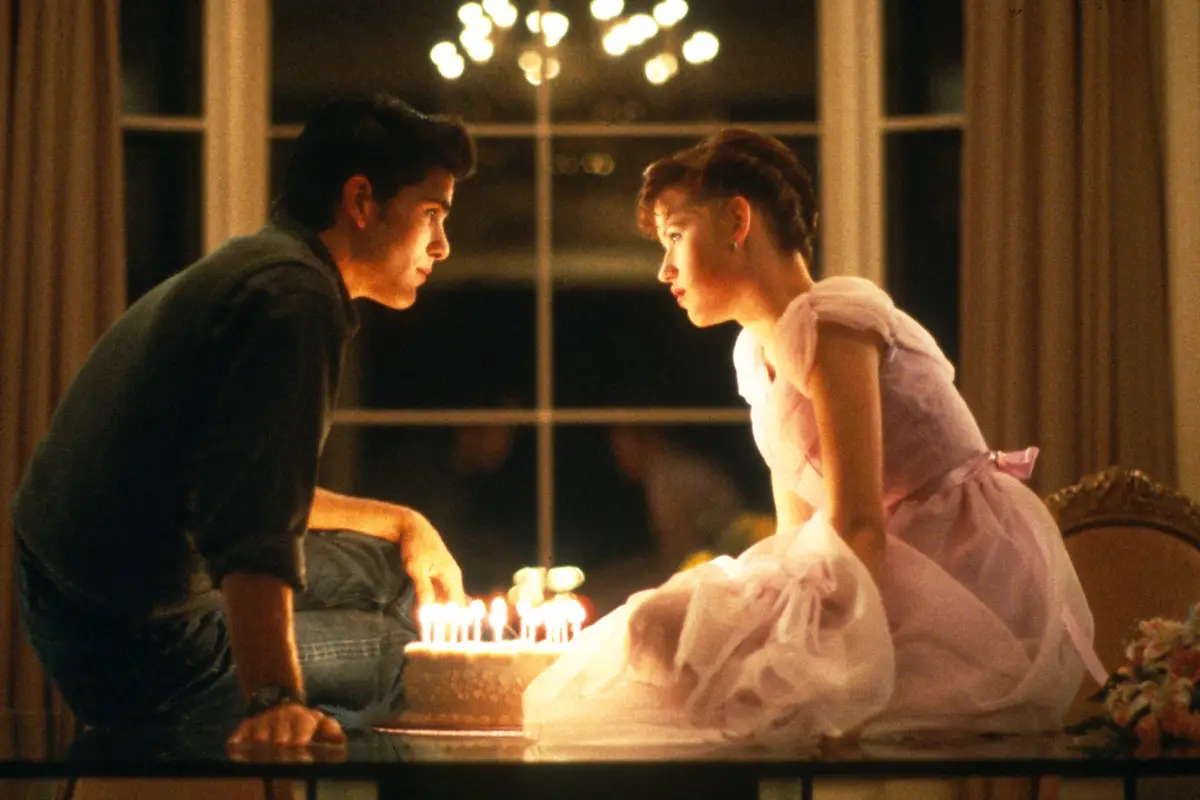“Sixteen Candles” is one of those movies that I had always been aware of but had never seen. My mom would talk about how much she loved the film in the ‘80s, partially because, like the film’s protagonist, her 16th birthday was forgotten by her parents.
Despite my mother’s recommendation and my love for one of director John Hughes’ other movies, “The Breakfast Club,” I never got around to watching “Sixteen Candles.”
The film was brought to my attention recently, though, thanks to a conversation about the character of Chinese foreign exchange student Long Duk Dong (Gedde Watanbe). Some adult relatives of mine talked about how they took for granted that a character such as Duk Dong was funny but how, in today’s politically correct climate, he wouldn’t exist. All of this was said with a longing for when comedy was simpler, and viewers were less easily offended.
So I decided to watch “Sixteen Candles” myself. As someone who pays a lot of attention to discussions about diversity in Hollywood, I was curious as to whether or not I would be able to look past the potentially offensive parts of the film and still be able to enjoy it.
As it turned out, I enjoyed about half of the movie, specifically the half in which Ringwald’s character Samantha is onscreen. Sam is an endlessly relatable protagonist to any girl who went through high school and — as Ringwald was only 15 when the film was made — her performance still feels very honest. Strictly as a coming-of-age film about a young girl, “Sixteen Candles” holds up.
The movie centers around Sam’s 16th birthday, a day that she has been eagerly anticipating, but one in which her entire family forgets in a frenzy to prepare for her older sister’s wedding. Sam’s misery is exacerbated by her hopeless crush on Jake Ryan (Michael Schoeffling), a senior who does not even know that she exists. Add to that the fact that she is being pursued by The Geek (Anthony Michael Hall) who has a bet with his friends that he can sleep with her, and Sam’s life seems to be completely falling apart.
What makes “Sixteen Candles” so endearing is how mundane Sam’s problems are. While viewers realize that a forgotten birthday and an unrequited crush are not the end of the world, those problems cause Sam to feel very palpable pain and the film does not discount her emotions. When she sits crying outside of her high school dance after being embarrassed by The Geek, it is impossible not the empathize with her.
The weight given to high school concerns is a large part of what made Hughes’ films so special. Teenagers are centered as the protagonists and are allowed to express their worries about fitting in or falling in love. For anyone who has obsessed over a crush, watching Sam go from frustration to despair can be therapeutic in the sense that it shows viewers that they are not alone.
Unfortunately, the happiness that viewers may feel when Sam eventually gets the guy is undercut by how that guy behaves. Sure, Ryan is handsome and the fact that he is looking for a serious relationship with Sam is charming, but he also trades his drunk girlfriend for a pair of Sam’s underwear — it is hard to imagine any good relationship starting that way.
Ringwald herself has written about revisiting her old movies in the age of #MeToo, and condemned the behaviors of Ryan and The Geek in “Sixteen Candles” that lead to non-consensual sex. Those scenes are definitely hard to watch but it is also true, as Ringwald wrote, that the conversation around them has changed. Those scenes can now serve as reminders about why sexual assault needs to be taken seriously, rather than used as a punchline.
There is less of a silver lining when watching the scenes that feature Duk Dong. The character is written as nothing more than a racist caricature, complete with the sound of a gong each time he is mentioned or shown. He is given almost no character traits aside from being horny and bad at English, as he is used solely for the purpose of slapstick comedy.
He served the traditional ’80s comedic niche as audiences found the character hysterical and quoted his most memorable lines. The character also, however, gave audiences new material with which to tease Asian Americans. While even the actor who portrayed him, Watanabe, thought the character was all in good fun, it cannot be denied that Duk Dong perpetuated many negative Asian stereotypes.

One of the main reasons that the character is hard to stomach today is that he is the only example of diversity on screen in “Sixteen Candles.” No other characters, whether they play a large part in the story or are merely in the background, provide any kind of racial diversity, and therein lies the problem. When “Sixteen Candles” was made, caricatured characters such as Duk Dong were the only roles available to Asian actors.
Even now, Asian characters are not widely represented on screen. In 2015, only 3.9 percent of film characters were Asian. It is hard to giggle at Duk Dong knowing that for a long time, he was the only place where Asians and Asian-Americans saw themselves featured in movies. Watching his antics now comes off as much more cringe-inducing than funny.
“Sixteen Candles” did a lot right while also managing to get so much wrong. If you look solely at the main storyline following Sam, the film can be commended for giving depth to a female protagonist and for portraying the turmoil of high school in an honest way. Whenever Sam disappears from the screen, however, the perpetuation of sexual assault and racism tend to take over and make the film very difficult to enjoy.
This is not to say that “Sixteen Candles” should be forgotten or shunned. Sam remains the type of character that young girls need to see more of in movies, and Hughes’ work continues to be the foundation for the high school comedy genre today. The film is a time capsule of ‘80s culture and, as such, can serve as a reminder of how far Hollywood has come, and how far it still has to go.














